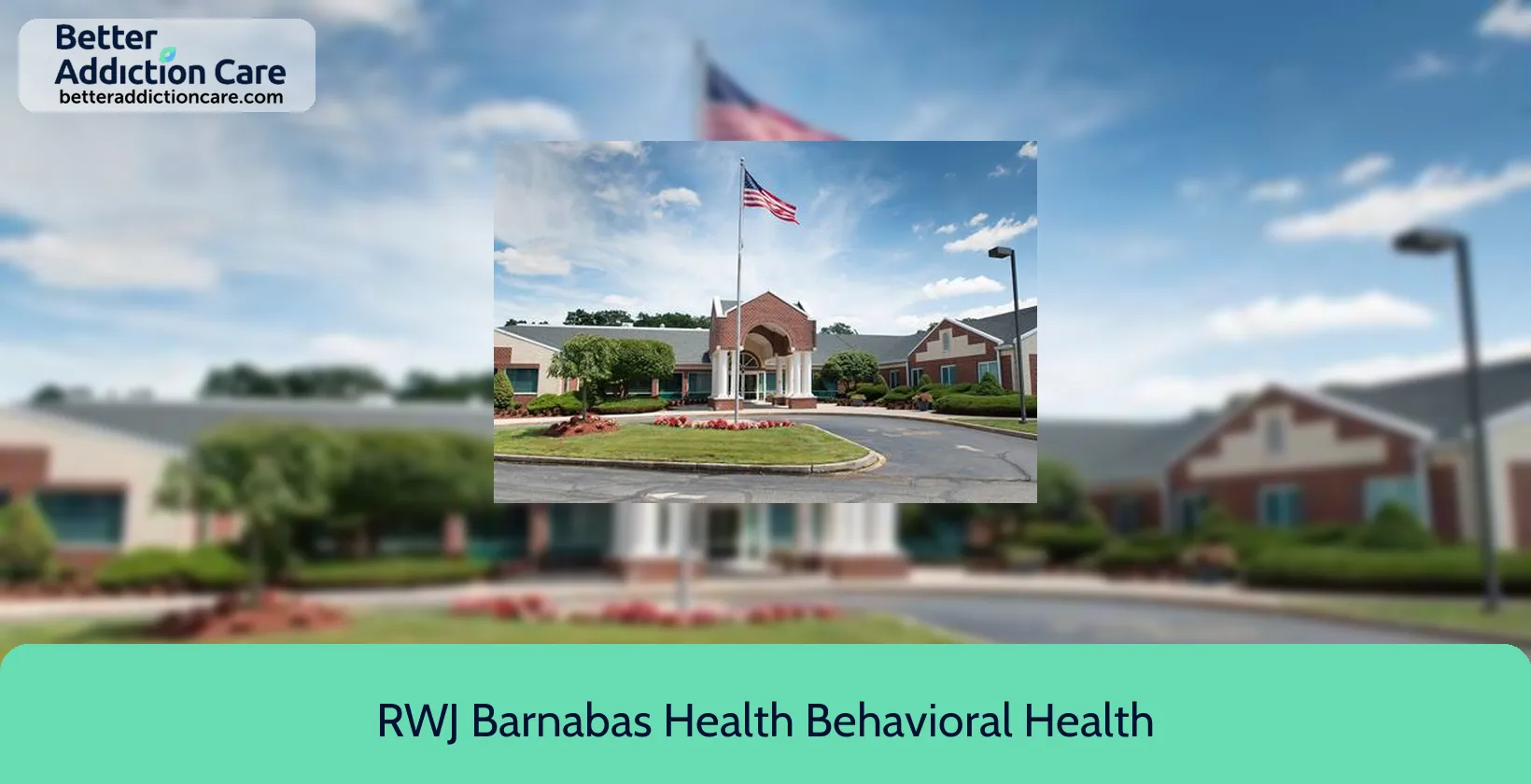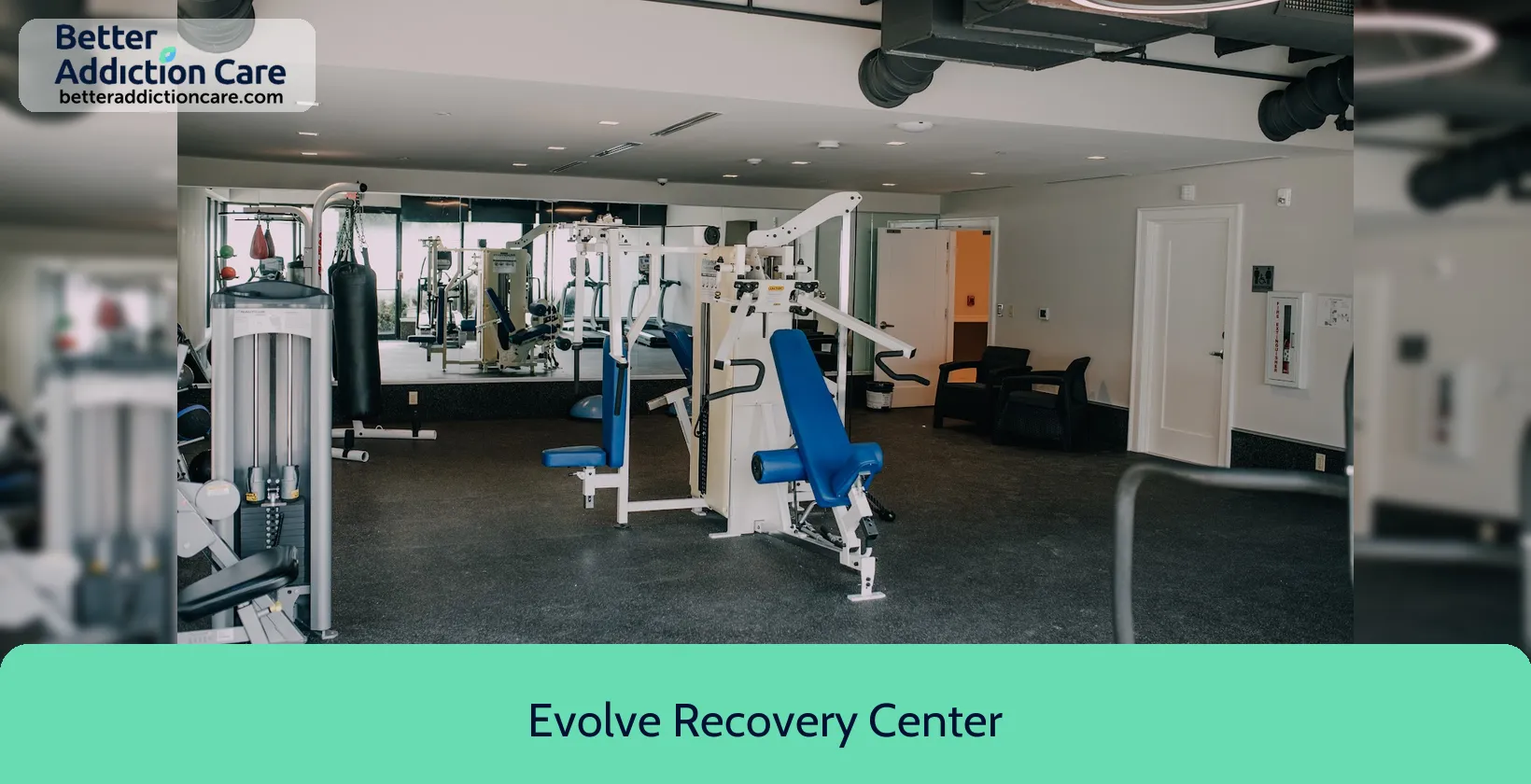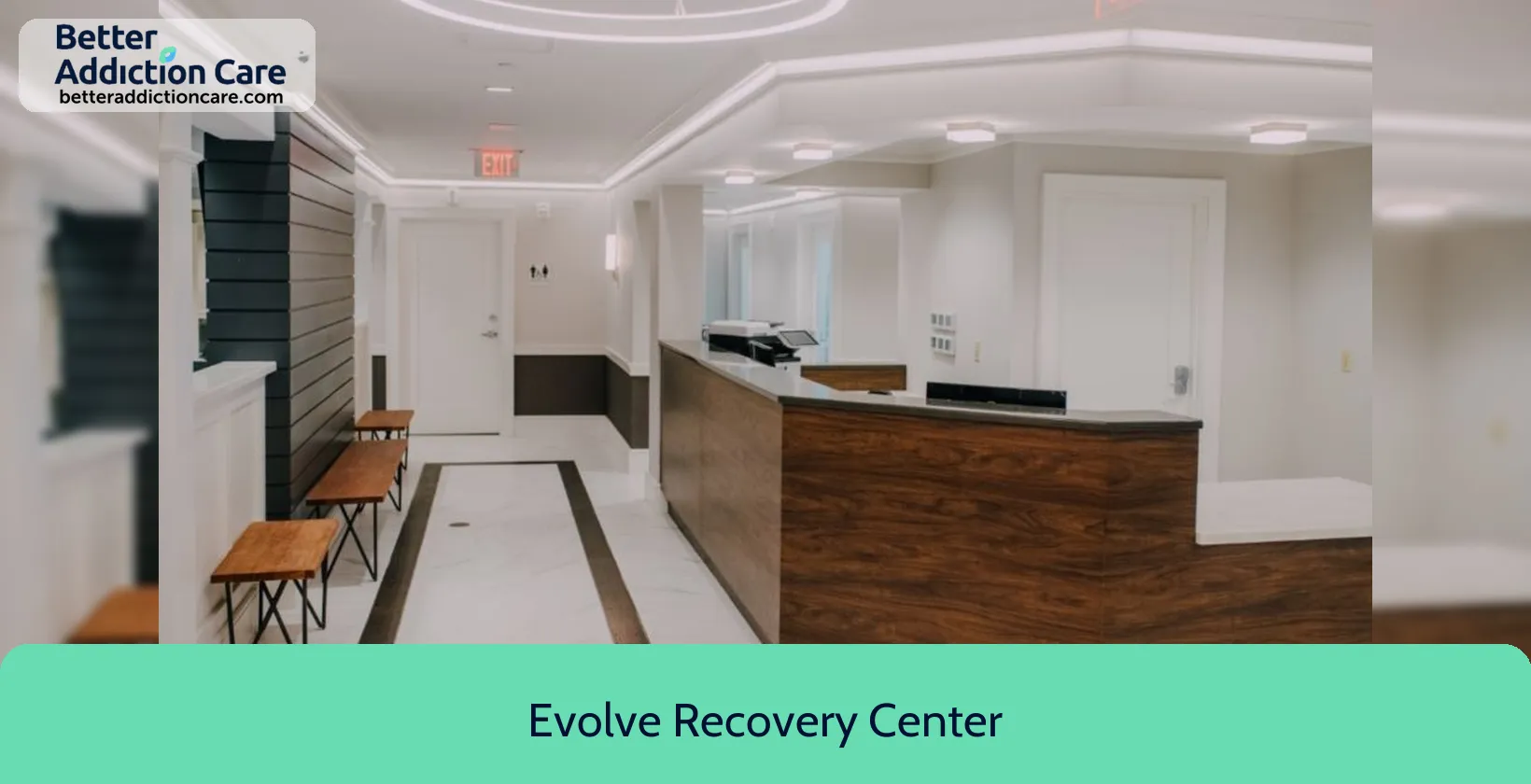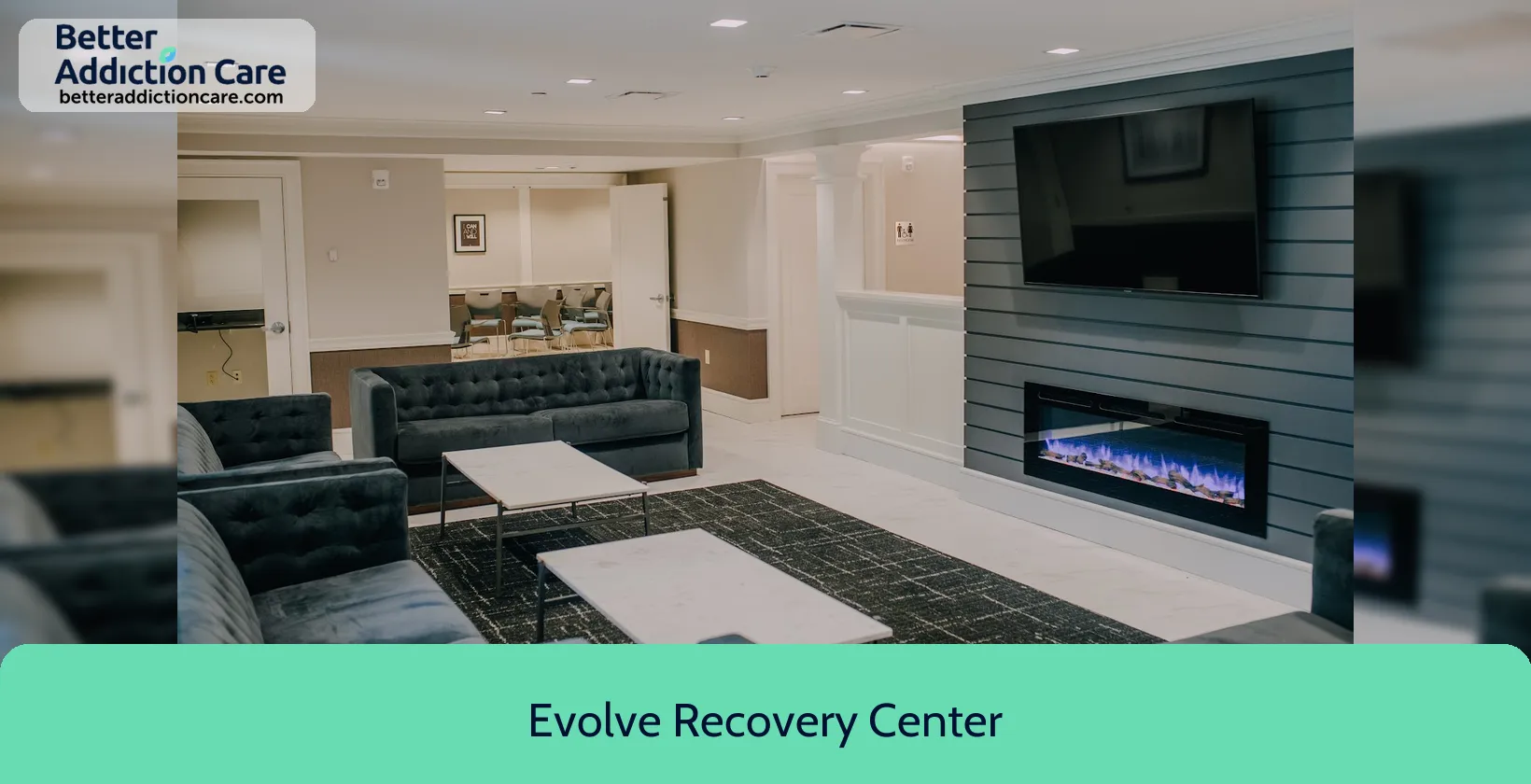Evolve Recovery Center
Overview
Evolve Recovery Center, located in Toms River, New Jersey, is a residential treatment facility dedicated to helping men and women aged 18 and older overcome drug and alcohol addiction, as well as co-occurring mental health disorders. The center is committed to providing high-quality care in a safe and supportive environment, with FDA-approved Medication-Assisted Treatment (MAT) detox available. The Center is particularly known for its specialized veterans program and their intervention services program.
As a residential-only facility, it offers 24/7 medical supervision, with a team of highly trained professionals available to address the needs of clients around the clock. The average stay is approximately 30 days, during which clients receive comprehensive care designed to support their physical, emotional, and mental well-being. The therapeutic services at Evolve Recovery Center are diverse and evidence-based, including Individual Therapy, Group Therapy, Family Therapy, and Marital Therapy, Cognitive Behavioral Therapy (CBT), Dialectical Behavior Therapy (DBT), Motivational Interviewing, and Art Therapy, providing a wide range of tools for clients to explore their emotions, behaviors, and motivations.
The center believes in a balanced approach to recovery that considers all aspects of health, including nutrition. Meals and snacks are prepared fresh daily by an on-site chef, ensuring that clients receive nourishing and well-balanced meals during their stay. The center also provides transportation services to make accessing treatment as convenient as possible for clients. It is also accredited by CARF, the National Association of Addiction Treatment Providers (NAATP), The Joint Commission, the American Society of Addiction Medicine (ASAM), and is certified by LegitScript. These accreditations underscore the center’s commitment to maintaining the highest standards of care and ensuring ethical, effective treatment for all clients.
Evolve Recovery Center at a Glance
Payment Options
- Cash or self-payment
- Private health insurance
- Daily
- Sliding fee scale (fee is based on income and other factors)
- Self-pay options
Assessments
- Comprehensive mental health assessment
- Comprehensive substance use assessment
- Outreach to persons in the community
- Screening for mental disorders
- Screening for substance use
Age Groups
- Young adults
- Adults
- Seniors or older adults
Ancillary Services
- Case management service
- Suicide prevention services
- Transportation assistance
Highlights About Evolve Recovery Center
7.63/10
With an overall rating of 7.63/10, this facility has the following balanced range of services. Drug Rehab and Detox: 8.15/10, Alcohol Rehabilitation: 8.00/10, Treatment Options: 7.58/10, Insurance and Payments: 6.80/10.-
Drug Rehab and Detox 8.15
-
Alcohol Rehabilitation 8.00
-
Treatment Options 7.58
-
Insurance and Payments 6.80
Accreditations
The Joint Commission:

The Joint Commission's addiction and behavioral health accreditation signifies a facility's commitment to high-quality care. It involves rigorous evaluations and assessments of clinical practices, ensuring effective, evidence-based treatment. Accreditation showcases a dedication to continuous improvement and patient safety, instilling trust among patients, families, and healthcare professionals. It's a mark of excellence in addiction and behavioral health care.
NAATP:

The National Association of Addiction Treatment Providers (NAATP) accreditation for addiction and behavioral health is a recognized and respected certification that signifies a treatment center's commitment to delivering high-quality services in the field of addiction and behavioral health. It serves as an assurance of compliance with industry standards and best practices, ensuring that individuals seeking help receive effective and ethical care. Accreditation from NAATP demonstrates a facility's dedication to maintaining rigorous standards, fostering accountability, and prioritizing the well-being and recovery of its clients.
CARF:
CARF accreditation is a prestigious recognition granted to rehabilitation and human service organizations. It signifies that an organization meets high-quality standards, having undergone a rigorous evaluation process. CARF accreditation boosts an organization's credibility and ensures top-notch care for individuals with disabilities, injuries, or healthcare needs.
LegitScript:

The LegitScript Accreditation signifies an organization's commitment to ethical and high-quality care in the field of addiction treatment and behavioral health. This accreditation allows treatment providers to be included in Google's network, ensuring compliance with HIPAA privacy regulations.
Treatment At Evolve Recovery Center
Treatment Conditions
- 24-Hour Clinical Care
- Alcoholism
- Substance use treatment
- Opioid Treatement
- Co-occurring Disorders
Care Levels
- Hospital inpatient treatment
- Long-term residential
- Hospital inpatient/24-hour hospital inpatient
- Luxury Treatment
- Aftercare
Treatment Modalities
- Cognitive behavioral therapy
- Substance use disorder counseling
- Group counseling
- Family counseling
- Marital/couples counseling
Ancillary Services
Languages
- Sign language services for the deaf and hard of hearing
Additional Services
- Pharmacotherapies administered during treatment
- Mentoring/peer support
- Breathalyzer or blood alcohol testing
Pharmacotherapies
- Benzodiazepines
- Cocaine
- Hallucinogens
- Oxycodone/Painkillers
- Methadone
Get Help Now
Common Questions About Evolve Recovery Center
Contact Information
Other Facilities in Toms River

6.93

6.65

6.68

7.52

6.74

6.89
DISCLAIMER: The facility name, logo and brand are the property and registered trademarks of Quantum Behavioral Health Services, and are being used for identification and informational purposes only. Use of these names, logos and brands shall not imply endorsement. BetterAddictionCare.com is not affiliated with or sponsored by Quantum Behavioral Health Services.




